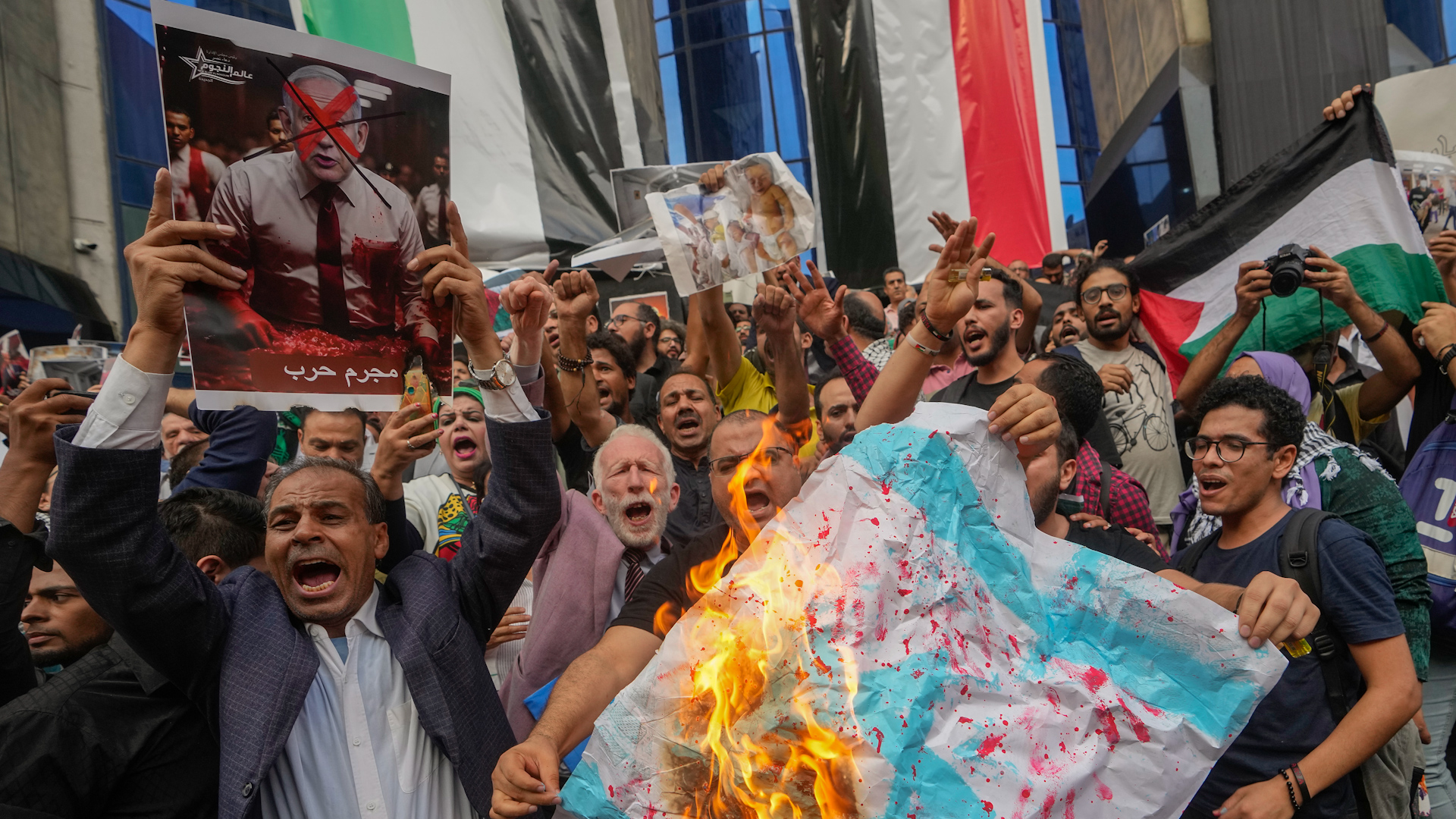
Egyptian protesters burn an Israeli flag during a demonstration to show solidarity with Palestinians, in front of the Journalists Syndicate in Cairo on October 18.
Egyptian protesters burn an Israeli flag during a demonstration to show solidarity with Palestinians, in front of the Journalists Syndicate in Cairo on October 18.
Egypt and Israel are at odds over where Palestinian refugees forced to flee their homes in Gaza should go.
The Israeli diplomat and former deputy foreign minister Danny Ayalon spelled out Israeli expectations in a recent interview with Aljazeera, saying Egypt must “play ball” with Israel over relocation of Palestinians from Gaza into Egypt’s Sinai Peninsula.
According to Ayalon, Tel Aviv would create what they call a humanitarian corridor to establish tent cities for Palestinians in Egypt's Sinai until Israel fulfills its aim of defeating Hamas.
However, Egypt’s President Abdel Fattah al-Sisi has rejected this idea, publicly saying, "The idea of displacement of Palestinians from the Gaza Strip to Egypt simply means that a similar situation will occur by the displacement of Palestinians from the West Bank to Jordan. This means that the idea of a Palestinian state that we're discussing, and that the international community is discussing, will no longer be possible."
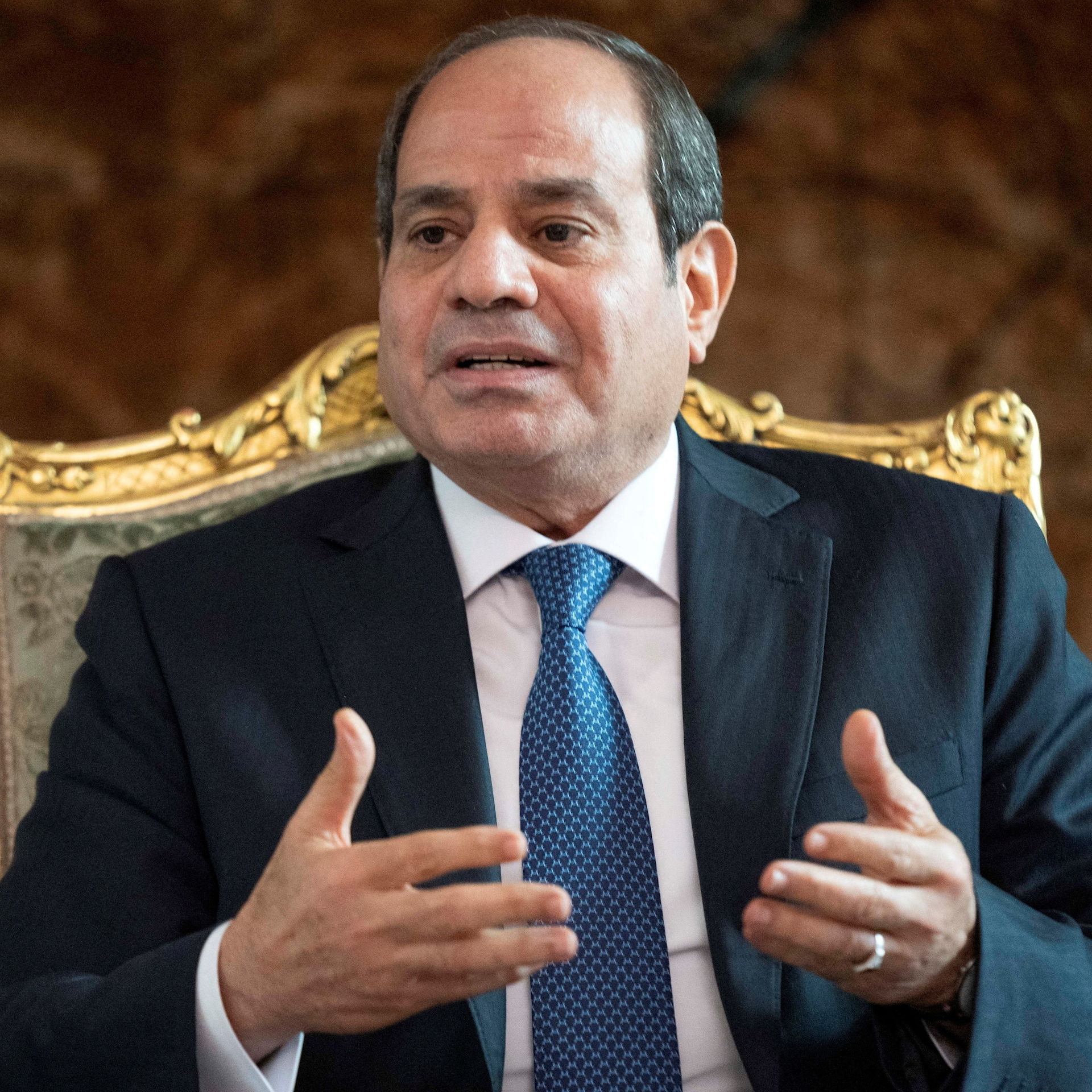
Egypt's President Abdel Fattah El-Sisi speaks while meeting with U.S. Secretary of State Antony Blinken, at Al-Ittihadiya Palace in Cairo on October 15.
Egypt's President Abdel Fattah El-Sisi speaks while meeting with U.S. Secretary of State Antony Blinken, at Al-Ittihadiya Palace in Cairo on October 15.
Egypt’s perspective is that the move would deal a blow to Palestinian statehood and create a potential security threat within its own borders. Sisi even suggested that if Israel would like to move Palestinians out of Gaza, they could be moved to the Negev desert in Israel's south.
Sisi is not Egypt’s first president to suggest Gaza Palestinians be moved to Sinai. Long-time leader Hosni Mubarak has claimed that Israeli Prime Minister Benjamin Netanyahu made the same proposition to him shortly before he was ousted in 2011, and which he says he roundly rejected.
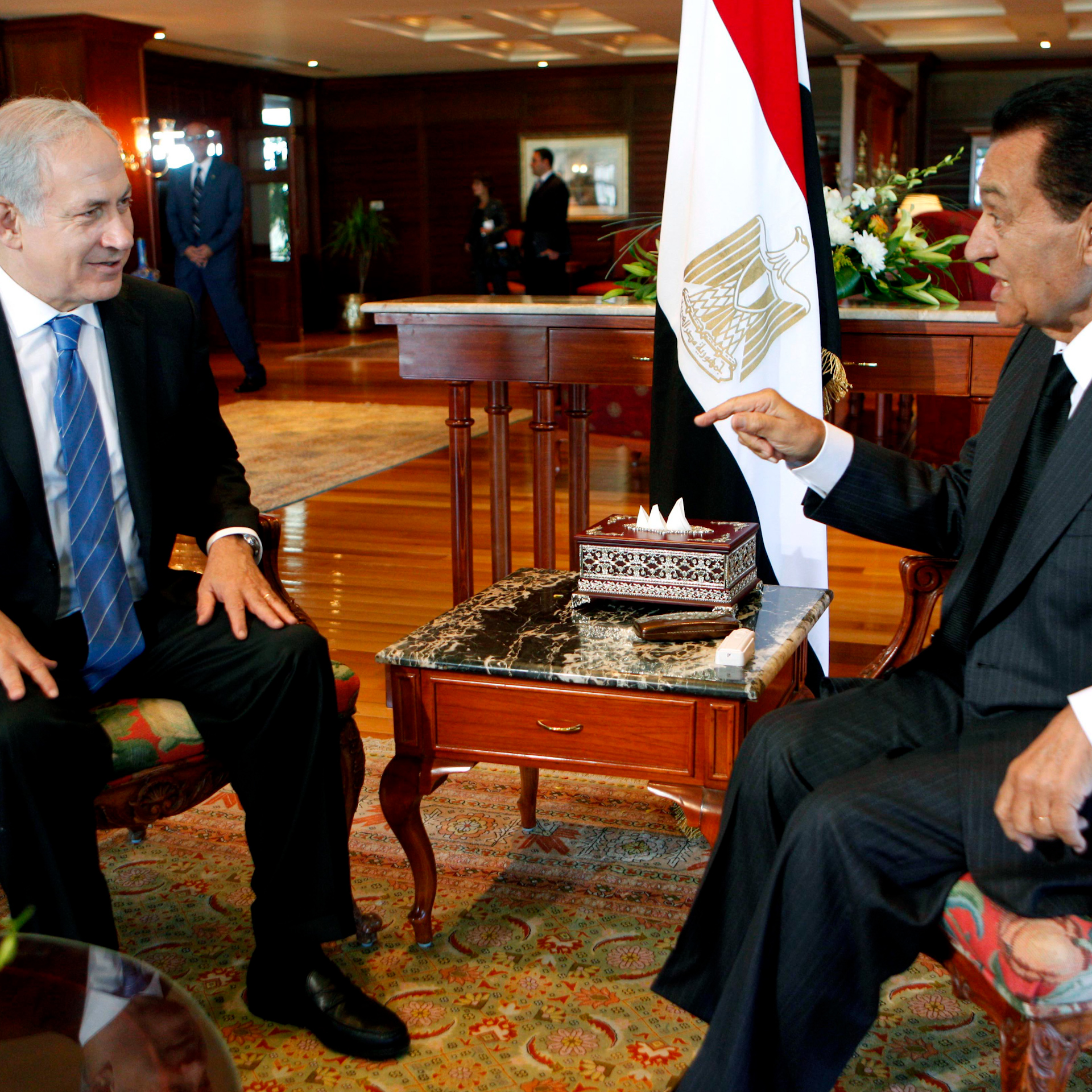
Egyptian President Hosni Mubarak met with Israeli Prime Minister Benjamin Netanyahu at the Red Sea resort of Sharm el-Sheikh, Egypt, on September 14, 2010, as Egypt hosted the second round of Israeli-Palestinian peace talks.
Egyptian President Hosni Mubarak met with Israeli Prime Minister Benjamin Netanyahu at the Red Sea resort of Sharm el-Sheikh, Egypt, on September 14, 2010, as Egypt hosted the second round of Israeli-Palestinian peace talks.
The Sinai issue is especially sensitive due to multiple wars fought between Egypt and Israel. In 1967, Israel took control of the Sinai Peninsula from Egypt during its Six-Day War against neighboring Arab states, known in Arabic as the "Naksa” or "The Catastrophe."
In 1973, a surprise attack by Egypt, in what is referred to in Israel as the Yom Kippur War and in Egypt as the October War, saw Cairo regain much of its sovereignty over the Sinai. In 1979, Egypt regained its full rights to Sinai through the Camp David Accords, brokered by U.S. President Jimmy Carter. That same year, Egypt became the first Arab nation to normalize ties with Tel Aviv.
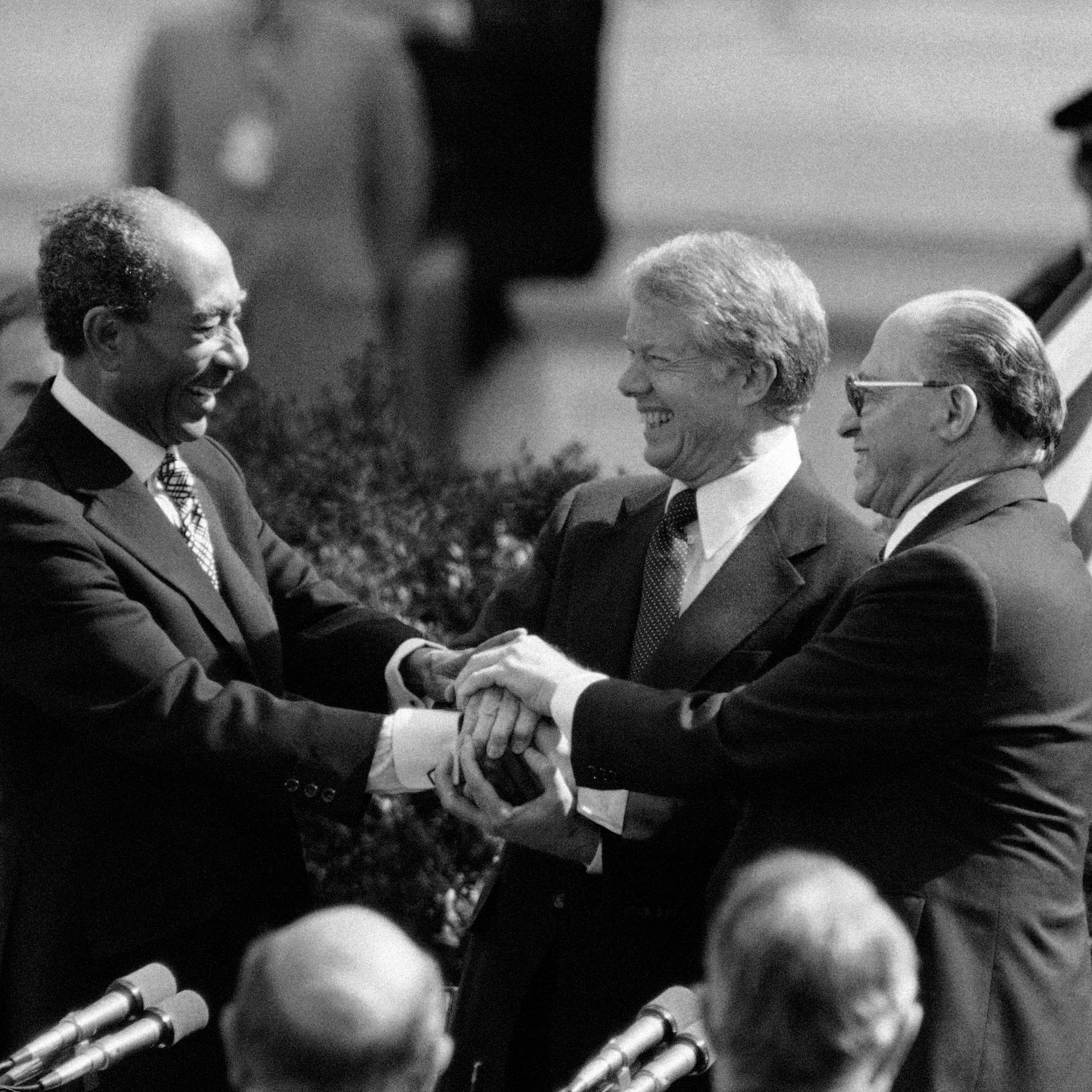
Egyptian President Anwar Sadat, President Jimmy Carter, and Israeli Prime Minister Menachem Begin clasp hands after signing the Middle East Peace Treaty at the White House in Washington.
Egyptian President Anwar Sadat, President Jimmy Carter, and Israeli Prime Minister Menachem Begin clasp hands after signing the Middle East Peace Treaty at the White House in Washington.
Today tensions are brewing. A series of pro-Palestinian protests have broken out across Egypt's major cities since Israel began bombarding Gaza in response to the attack Hamas launched on October 7.
Israel evacuated staff from its embassy in Cairo over safety fears. Meanwhile, Egypt moved quickly to send armored trucks and tanks to the Rafah crossing to ensure that no forced displacement could occur.
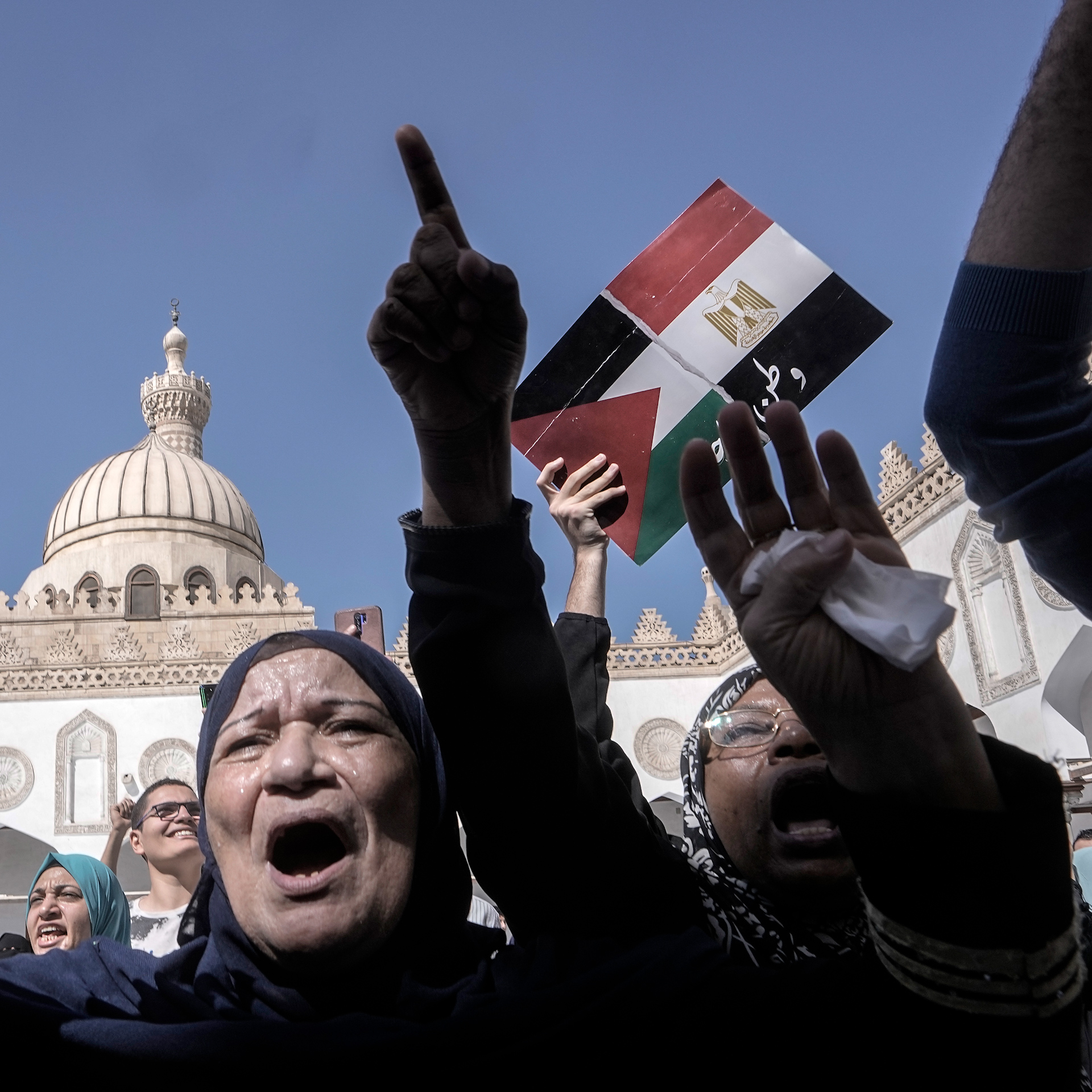
Protesters hold placards with the Egyptian and Palestinian flags with the words "one nation" written in Arabic during a rally to show solidarity with the people of Gaza after Friday prayers at Azhar mosque, in Cairo, Egypt on October 20.
Protesters hold placards with the Egyptian and Palestinian flags with the words "one nation" written in Arabic during a rally to show solidarity with the people of Gaza after Friday prayers at Azhar mosque, in Cairo, Egypt on October 20.
The issue of humanitarian aid has also been a sticking point. Aid convoys from Egypt waited for days to get into Gaza, as Israel was slow to guarantee their safety.
On Sunday, several Egyptian border guards were injured after Israel said it “accidentally” fired on an Egyptian army outpost. Israel expressed regret and said an investigation is underway.
It's exactly the type of incident analysts fear could spark the expansion of Israel's war with Hamas into a wider regional war.
For more, check out our exclusive content on CGTN Now and subscribe to our weekly newsletter, The China Report.
Source(s): AP